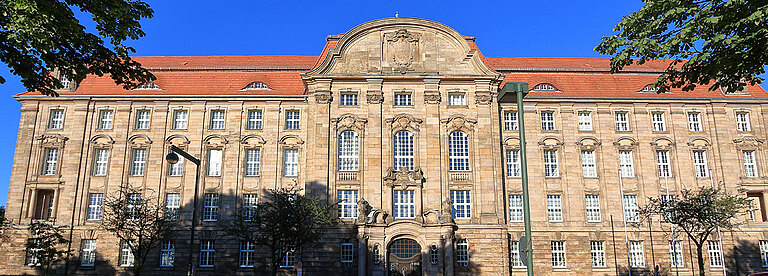This partnership is also reflected in the published statistics of the GPTO, in which Japanese applicants formed the largest group of foreign applicants, having filed 7,247 applications in 2020 (3,754 national phases of international applications according to the Patent Co-operation Treaty [PCT] and 3,493 direct national applications). The close partnership is further reflected in an examiner exchange programme, where patent examiners discuss search strategies, the use of search systems, and optimisation of procedures on mutual visits for about 20 years. Such a close partnership forms a solid basis for companies in both countries to protect their IPs, particularly patent protection for technical innovations.
Patent protection is essential for safeguarding technical innovations. In Germany, patents are granted for inventions in all fields of technology, provided that they are new, involve an inventive step and are susceptible to an industrial application (section 1(1) of the German Patent Act). Modern technological developments rely on software implemented in control and communication systems. Such software-based developments can be patented as computer-implemented inventions. In this way, patent protection can be obtained for valuable technical innovations, particularly in automation, digitisation and artificial intelligence, which are an integral part of many fields of technology nowadays.
Japanese applicants may obtain patent protection in Germany either by filing a national German patent application, e.g. claiming priority of an earlier Japanese national application, or by entering a German national phase of an international patent application previously filed with the Japanese Patent Office (JPO). After filing a patent application with the GPTO, or the JPO for a PCT application, applicants may initiate an examination in Germany by filing a request for examination within seven years after the date of filing.
Subject to the filing of the request for examination, the application will undergo substantive examination by a technical examiner qualified in the relevant field. The examiner will issue office actions with objections concerning formal aspects and patentability, which the applicants may answer with arguments and amendments to the patent application. If the request for examination is filed within four months from the date of filing the application, the GPTO estimates the duration of the grant procedure to be between 30 and 36 months.
An option for Japanese applicants to accelerate the grant procedure in Germany is participation in the Global Patent Prosecution Highway programme. If the JPO has already acknowledged a patent claim to be patentable for an application filed with the same content at the GPTO, an accelerated examination may be requested.
Japanese applicants may further obtain patent protection in Germany by filing a European patent application directly with the European Patent Office (EPO), e.g. claiming priority of an earlier Japanese application or entering a European regional phase of a PCT application previously filed with the JPO. The European patent applications also undergo substantive examination carried out by technical examiners qualified in the relevant technical field. The EPO estimates the duration of the grant procedure between three to five years after the date of filing, whereby Japanese applicants may request accelerated processing of the application based on a patent prosecution highway (PPH) programme between the EPO and the JPO for applications whose claims have been determined to be allowable already by the JPO.
After a patent is granted, patent proprietors seeking to enforce their patents in Germany will find highly qualified infringement courts with more than a century of court practice in IP cases. The German infringement courts have been continuously hearing a large number of cases that can be attributed to affordable proceedings, even for small and medium-sized companies. This is reflected in a very large number of decisions of the last instance, the German Federal Supreme Court, that formed a detailed system of German case law covering a large variety of situations in the past few decades. In about 30% of all patent infringement cases, injunctions are granted in favour of the respective patent proprietors.
One of the biggest changes in Germany’s IP world will be the entry into force of the unitary patent (UP) system and the Unitary Patent Court (UPC), which – at the time of writing this article – are expected in the second half of 2022. A UP will be based on a “classic” European patent granted by the EPO based on the European Patent Convention (EPC). The unitary effect may be requested by the patent proprietor enabling protection in up to 24 member states of the EU, so that the UP will be an additional option besides the classic European and German patent. At present, 17 countries have ratified the UPC Agreement (UPCA), and seven further EU member states are expected to ratify the UPCA in the future.
The UPC will have jurisdiction over UPs and classic European patents. In the first instance, the UPC will consist of local divisions in member states, regional divisions for two or more states, and a central division. The central division will be seated in Paris, Munich, and another location originally planned to be London, but remains unclear due to Brexit. Among the member states, Germany is the only state that will host more than one local division in Dusseldorf, Mannheim, Munich and Hamburg. The UPC will not have any jurisdiction over national patents.
The UPC will have competence for actions for actual or threatened infringements and related defences, actions for declaration of non-infringement, actions for provisional and protective measures and injunctions, actions for revocation, and for counterclaims for revocation.
A patent proprietor having not requested a unitary effect after the grant of a classic European patent may notify a so-called “opt-out” to the registry of the UPC for a transitional period of seven years, which may be prolonged for another seven years. A “sunrise period” in which declaring an early opt-out is possible will start three months before the UPC takes effect. Having declared the opt-out, a patent proprietor may enforce a German part of the classic European patent before the German civil courts and may defend the same before the German Federal Patent Court.
Unless an action has already been brought before the UPC, an opt-out can be declared for granted classic European patents until the very last day of the transitional period and applies for the entire lifetime of the European patent for which it was declared. Unless an action has already been brought before a national court, an opt-out may be withdrawn by notifying the registry of the UPC. Reasons for not declaring an opt-out could be possible cross-border enforcement in up to 24 member states and the use of a uniform language across several countries.
The predictability and high quality of German courts may speak in favour of declaring an opt-out. Whether or not to declare an opt-out may be answered on a patent-by-patent basis, based on whether it is intended to shape a new court system or enforce a patent in Germany using an experienced, high-quality court system.
In view of this, an interesting option for the initial years may lie in the possibility to obtain a German national patent and a unitary patent, or European patent for which no opt-out is declared, in parallel to protect the same subject matter. According to German law, the patent ceases to have effect to the extent that it protects the same invention as the classic European patent. However, such double patenting is not prohibited for a German patent and a unitary patent or European patent for which no opt-out is declared. It will thus become possible for the same proprietor to hold two patents for the same subject matter in Germany, one of them subject to the jurisdiction of the UPC and the other being subject to the jurisdiction of the German courts. This will open new possibilities for patent proprietors.
While the German court system will likely remain important, given a large number of local German divisions of the UPC, it can be expected that the German or at least the continental European judicial culture will have a large influence on the development of the application of law and on case law at the UPC. Therefore, it is recommended that foreign applicants intending to enforce patents in Germany draft patent applications tuned to German enforcement practice, which largely coincides with the drafting style recommendable for the EPO and the GPTO.
In a nutshell, an application to be enforced in Germany should tell a convincing story that may help sell the technical innovation, describe technical advantages accordingly and ideally supports a function-oriented claim construction.
Read this article in Japanese.
This article first appeared in Asia Business Law Journal/Japan Outbound Investment Guide.
Header: Wirestock Creators - AdobeStock.com




